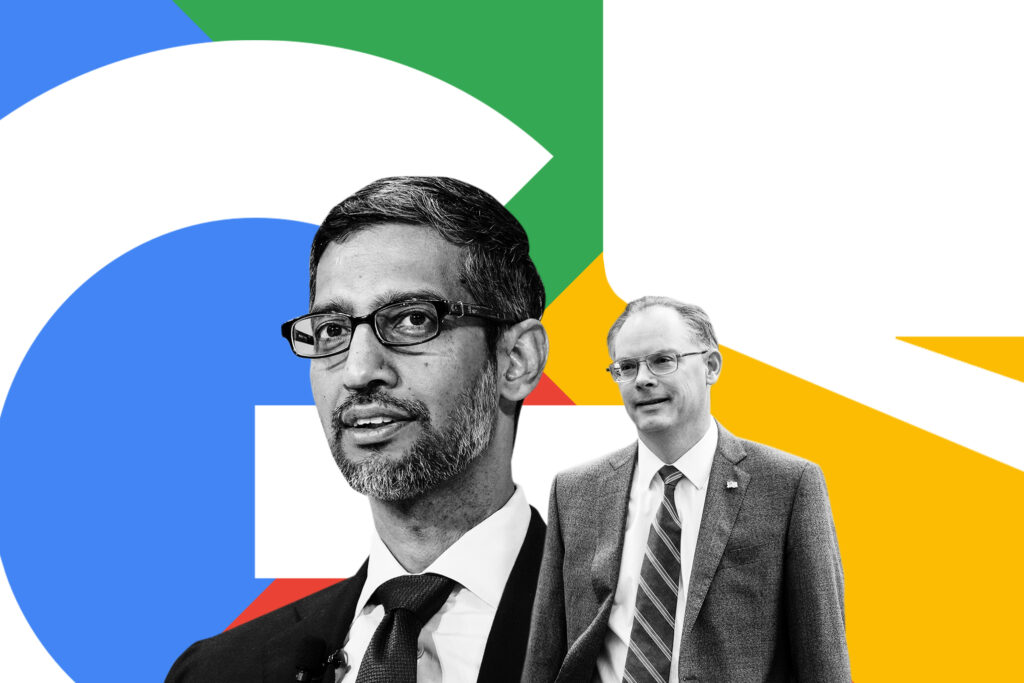
The Ninth Circuit Court of Appeals is done with its role in the Epic Google case, and Google won’t be happy with the result. On Friday, the court completely denied its petition to have its Epic v. Google case re-heard — and pressed play on a permanent injunction that will force Google to begin cracking open its Android app store.
Unless or until the US Supreme Court decides to hear the case, Google will be forced to let developers bypass its Google Play Billing app store payment system, and let them link to outside app store downloads, within 30 days. And that’s just the start. Google will also be forced to carry rival app stores inside the Google Play Store and share its full catalog of apps with those stores by summer 2026 unless the Supreme Court grants a stay.
Epic already won its case at the Ninth Circuit on July 31st, when a three-judge panel decided not to overturn the unanimous jury verdict from 2023 that Google’s app store and payment systems had become illegal monopolies. But Google argued that the Supreme Court might see things differently, and asked for what’s called an “en banc” review where the whole Ninth Circuit weighs in.
But not a single additional Ninth Circuit judge wanted to re-hear the case, the court wrote on Friday, denying Google’s petition. And with that, the Ninth Circuit also restarted the clock on forcefully cracking open Android, giving the company a new deadline of just 30 days to begin complying, and 10 months until Google must open up its app store to rivals. That’s up from 14 days and 8 months previously.
So, what must Google do by October? Here’s the TL;DR:
- Stop Google from forcing app developers to use Google Play Billing
- Let Android developers tell users about other ways to pay from within the Play Store
- Let Android developers link to ways to download their apps outside of the Play Store
- Let developers set their own prices
- Stop sharing money or perks with phonemakers, carriers, and app developers in exchange for Google Play exclusivity or preinstallation
- Work with Epic to resolve any disputes as Google builds a system to let rival app stores in
Don’t take my word for it; here’s the full text directly out of Judge Donato’s original permanent injunction for the parts that now have a 30-day deadline:
4. For a period of three years ending on November 1, 2027, Google may not share revenue generated by the Google Play Store with any person or entity that distributes Android apps, or has stated that it will launch or is considering launching an Android app distribution platform or store.
5. For a period of three years ending on November 1, 2027, Google may not condition a payment, revenue share, or access to any Google product or service, on an agreement by an app developer to launch an app first or exclusively in the Google Play Store.
6. For a period of three years ending on November 1, 2027, Google may not condition a payment, revenue share, or access to any Google product or service, on an agreement by an app developer not to launch on a third-party Android app distribution platform or store a version of an app that includes features not available in, or is otherwise different from, the version of the app offered on the Google Play Store.
7. For a period of three years ending on November 1, 2027, Google may not condition a payment, revenue share, or access to any Google product or service, on an agreement with an original equipment manufacturer (OEM) or carrier to preinstall the Google Play Store on any specific location on an Android device.
9. For a period of three years ending on November 1, 2027, Google may not require the use of Google Play Billing in apps distributed on the Google Play Store, or prohibit the use of in-app payment methods other than Google Play Billing. Google may not prohibit a developer from communicating with users about the availability of a payment method other than Google Play Billing. Google may not require a developer to set a price based on whether Google Play Billing is used.
10. For a period of three years ending on November 1, 2027, Google may not prohibit a developer from communicating with users about the availability or pricing of an app outside the Google Play Store, and may not prohibit a developer from providing a link to download the app outside the Google Play Store.
13. Within thirty days of the date of this order, the parties will recommend to the Court a three-person Technical Committee. Epic and Google will each select one member of the Technical Committee, and those two members will select the third member. After appointment by the Court, the Technical Committee will review disputes or issues relating to the technology and processes required by the preceding provisions. If the Technical Committee cannot resolve a dispute or issue, a party may ask the Court for a resolution. The Technical Committee may not extend any deadline set in this order, but may recommend that the Court accept or deny a request to extend. Each party will bear the cost of compensating their respective party-designated committee member for their work on the committee. The third member’s fees will be paid by the parties in equal share.
Google declined to answer whether it will comply with the court’s order by removing the requirement for Google Play Billing, allowing other payment methods, and letting developers link outside the Play Store by October, and working on the joint Technical Committee. Google spokesperson Dan Jackson only had this statement to offer:
We are disappointed with the Ninth Circuit’s decision – the injunction will undermine the security and privacy of users, and we are reviewing our appeal options. Protecting users and the Android ecosystem remains our top priority.
I also asked Epic about the committee, but haven’t heard back yet.
So far, Epic CEO Tim Sweeney has tweeted: “Now Google Play has 30 days to free ALL DEVELOPERS to offer competing payments in the USA — as Apple is required to do — free of scare screens, junk fees, and restrictions!” and “With super strong precedent in Epic v Apple, there’s no room for malicious compliance this time.” He also suggested that Epic doesn’t oppose Google’s new Android developer verification requirements in principle, but “we do oppose any use of such verification processes to block, stifle, or tax competing stores.”
Google has not yet said whether it will appeal to the Supreme Court, and we’ve asked about that as well. According to the Ninth Circuit, Google said that if it did appeal, it would do so within 45 days.
Here’s the Ninth Circuit’s latest decision:
Update, September 15th: Added that Google declined to answer, and its statement.




This is an interesting development in the ongoing Epic case. It will be fascinating to see how the Supreme Court handles this situation and what implications it may have for the tech industry. Thank you for sharing this update!
Absolutely, it really is a pivotal moment. The Supreme Court’s decision could set significant precedents for how tech companies navigate antitrust laws moving forward. It will be interesting to see the arguments presented and their potential impact on the industry.
You’re right, it could reshape the landscape for tech companies and their legal responsibilities. It’s interesting to consider how this case might influence future antitrust issues beyond just the gaming industry.
Absolutely, it’s a pivotal moment for not just Google but the entire tech industry. The outcome could set new precedents for how digital platforms handle user data and competition. It’ll be interesting to see how other companies respond if the ruling goes against Google.
I completely agree! This case could set important precedents for how tech companies are regulated moving forward. It’s fascinating to think about how the ruling might influence competition and innovation in the digital marketplace.
Absolutely! It’s fascinating to think about how the outcome could influence not just Google, but the entire tech industry moving forward. The implications for antitrust laws could reshape market dynamics significantly.
wider tech industry as well. If the Supreme Court rules in favor of Epic, it could set a precedent that impacts how app stores operate across the board. This case really highlights the ongoing tensions between tech giants and developers regarding fair practices and revenue sharing.
That’s a great point! A ruling in favor of Epic could indeed reshape not just Google’s practices, but also influence how other tech giants approach app store policies and revenue sharing. It’ll be interesting to see how this plays out and what it means for innovation in the tech space.
Absolutely! A decision in favor of Epic could also set important precedents for how app stores operate across the industry, potentially impacting smaller developers as well. It’ll be interesting to see how this unfolds and what it means for competition in the tech space.
You’re right! A ruling favoring Epic might not only impact Google but could also reshape the entire landscape of app store regulations, influencing how developers interact with platforms in the future. It’ll be interesting to see how this unfolds!
tech industry. It’s interesting to consider how a decision in this case could set precedents for app store policies and digital marketplaces overall. This could lead to more competition and innovation, which might benefit consumers in the long run.
Absolutely, the implications could ripple beyond just the app market. A ruling could redefine how digital platforms operate and interact with developers, potentially leading to more transparency in revenue-sharing models. It will be fascinating to see how this unfolds!